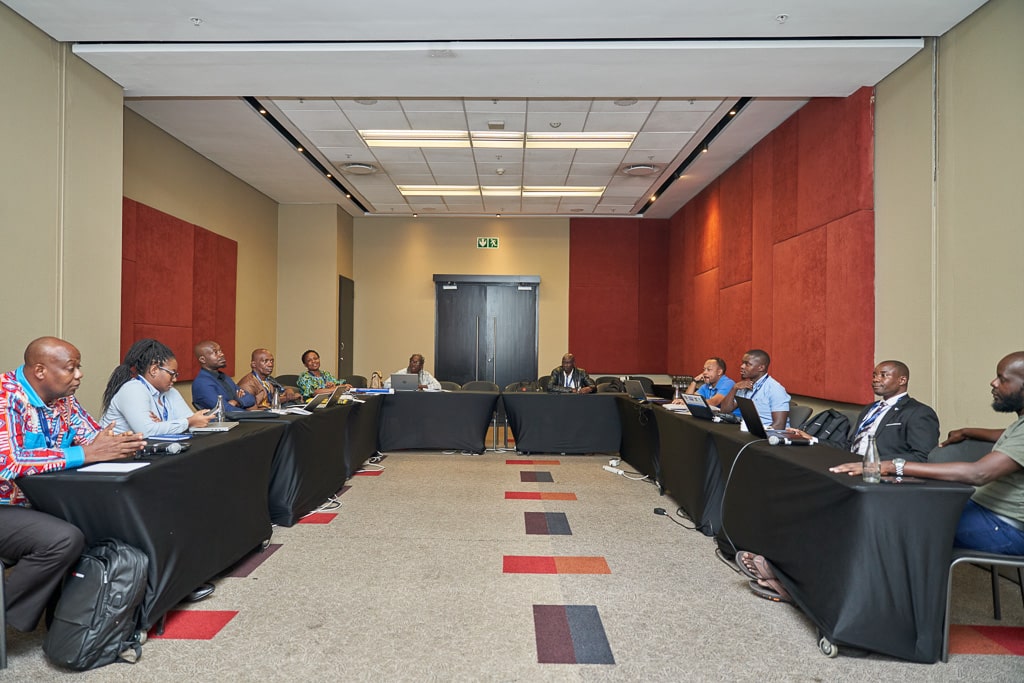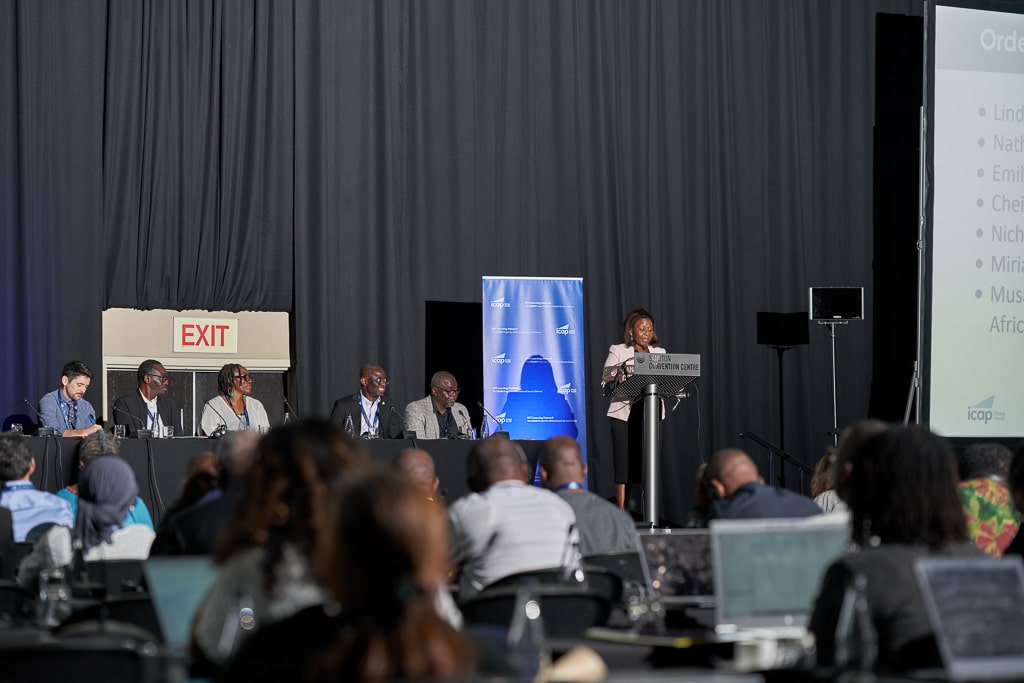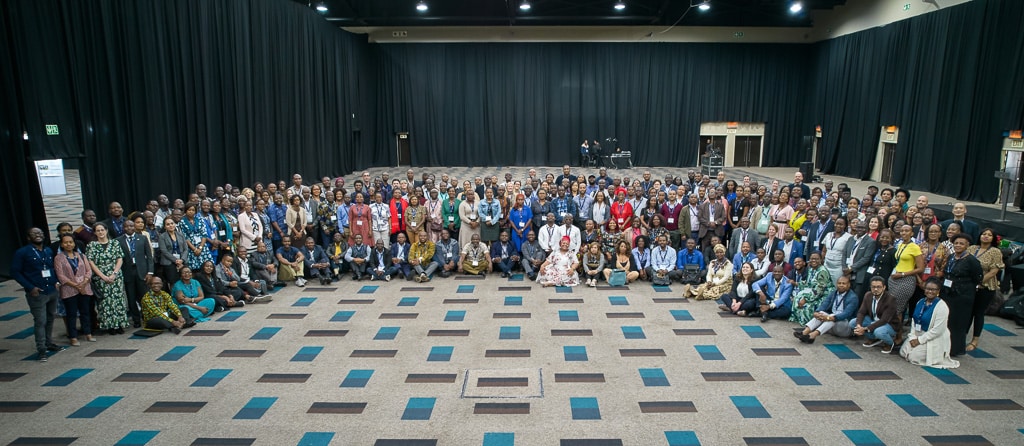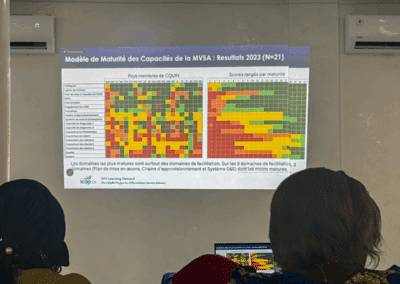From November 13 -17, 2023, ministry of health representatives, representatives from national networks of people living with HIV, donors, implementing partners, civil society, and academic institutions reviewed the advancements made in scaling up DSD using CQUIN’s capability maturity model (CMM) questionnaire tool for HIV treatment.
This year, countries used CQUIN’s updated CMM with two revised domains — TB/HIV and FP integration. CQUIN also introduced a new HIV and non-communicable diseases (NCDs) domain. “We are pushing to help countries go beyond differentiated HIV treatment to look at DSD for sub-populations, especially those who have co-morbidities. We want to focus on countries’ ability to capture and tailor efforts to cater to affected recipients of care,” said Karam Sachathep, PhD, ICAP’s senior strategic information manager.
In addition, all countries reported progress on advanced HIV disease, with CQUIN’s AHD capability maturity model, and reviewed their differentiated HIV testing results from an earlier meeting.
The meeting also fostered cross-country learning at several paired multi-country sessions where meeting attendees did a deep dive into methods used to achieve DSD program successes over the past year.
“Uganda’s AHD assessment results impressed us. Their AHD program is far advanced, and we have already requested tools from their team as we prepare to roll out our AHD package of care next year,” said Kwadwo Owusu, MBA, MPH, head of clinical care at Ghana’s National AIDS/STI Control Program.

Representatives from team Ghana (left) and team Uganda in a country exchange session.
“Tanzania’s success in the impact domain is an area Malawi has struggled with over the years. Following this meeting, we plan to prioritize DSD performance reviews to assess the impact of our DSD programs and improve our scores in that domain,” said Stanley Ngoma, BSc, MPH DSD focal person for Malawi.
Other platforms for sharing resources and successes included CQUIN community of practice breakout sessions, a tools lab where selected meeting attendees showcased some of their DSD tools used in their respective countries, and a poster session.
Countries also used the knowledge gained at the various meeting sessions to work on their strategic plans for the upcoming year. “Most of our activities for next year will focus on increasing quality standards, organizing DPRS, and creating targeted action plans for the gaps in our least mature domains,” said Zerihun Hika, MD, senior HIV program advisor with the Ethiopia Ministry of Health in one of the final sessions.
In several presentation sessions, stakeholders reflected on how beneficial CQUIN activities have been to countries in the network.
“This meeting has been a true multi-directional learning exchange,” remarked Emily Kainne Dokubo, MD, MPH, deputy global AIDS coordinator at the President’s Emergency Plan for AIDS Relief (PEPFAR) in the closing session. “We’ve seen learning from headquarters — global partners sharing information with the field, and we’ve seen country teams exchanging information with headquarters staff. That is the way partnership and engagement should be. I’m hoping we are all coming out of this week with lessons to improve services for the clients that we serve,” she said.
“CQUIN has made it possible for us to be visible globally and in our countries,” said recipient of care representative Lindiwe Simelane, director for the Swaziland AIDS Support Organization (SASO), Eswatini, in her closing remarks. “Recipients of care have gained capacity through these meetings. In all the sessions, we’ve been given the opportunity to express how we need our services as recipients of care. Because of CQUIN, most countries now include us in policy engagement.”
“I would like to acknowledge the support our country has received from CQUIN to understand gaps and come up with roadmaps to help us implement quality in our DSD interventions,” said Cheikh Ndour, MD, head of Senegal’s AIDS and STI Division at the Ministry of Health in his closing remarks. “We have progressed and identified the main gaps in achieving the last mile, including HIV care for children, men, women, and families. There is also the issue of linkage. We have generally noted that quality and impact are the least mature areas in our country self-assessments. We’ve also witnessed high-impact innovations noted in country-to-country visits that have been useful to most countries. Achieving the objectives of DSD will not be easy. Integration of non-HIV services into our HIV programs will require huge resources; however, our time together at this meeting will help us push forward.”

Closing plenary panel at CQUIN 7th Annual Meeting. Pictured from right to left: Emily Kaine Dokubo (PEPFAR), Musa Manganye (NDOH, South Africa), Peter Preko (ICAP), Lindiwe Similane (SASO Eswatini), Cheikh Ndour (MOH Senegal), and Nicholas Leydon (Bill & Melinda Gates Foundation)
“In 2 4, much of our focus is to continue our work with ministries of health and recipient of care representatives to integrate non-HIV services into HIV programs, starting with our integration meeting scheduled for April,” said Peter Preko, MBChb, MPH, CQUIN project director. We also plan to increase the utilization of DPRs among network countries to assess more intensive and integrated services to advance HIV service delivery,” he said.
Following the meeting, countries will prepare to validate their action plans with national stakeholders by January 2024 to begin implementation of their set targets.






